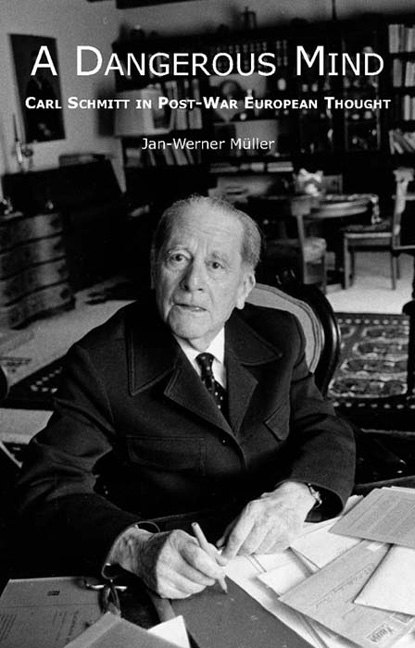Heretics

1974, Thomas S. Szasz, M.D., chapter 11, in The Myth of Mental Illness, page 197: In the framework of traditional medical ethics, the patientdeserves humane attention only insofar as he is potentiallyhealthy and is willing to be healthy—just as in the frameworkof traditional Christian ethics, the heretic deserved humaneattention only insofar as he was potentially a true believer andwas willing to become one. In the one case, people areaccepted as human beings only because they might be healthycitizens; in the other, only because they might be faithfulChristians. In short, neither was heresy formerly, nor is sick-ness now, given the kind of humane recognition which, fromthe point of view of an ethic of respect and tolerance, theydeserve.
Someone who does not to generally accepted orSynonyms.Translations.
Chesterton, the 'Prince of Paradox,' is at his witty best in this collection of twenty essays and articles from the turn of the twentieth century. Focusing on 'heretics' those who pride themselves on their superiority to Christian views Chesterton appraises prominent figures who fall into that category from the literary and art worlds. Luminaries such as Rudyard G. Chesterton, the 'Prince of Paradox,' is at his witty best in this collection of twenty essays and articles from the turn of the twentieth century. Focusing on 'heretics' — those who pride themselves on their superiority to Christian views — Chesterton appraises prominent figures who fall into that category from the literary and art worlds. Luminaries such as Rudyard Kipling, George Bernard Shaw, H. Wells, and James McNeill Whistler come under the author's scrutiny, where they meet with equal measures of his characteristic wisdom and good humor.In addition to incisive assessments of well-known individuals ('Mr.
Rudyard Kipling and Making the World Small' and 'Mr. Wells and the Giants'), these essays contain observations on the wider world. 'On Sandals and Simplicity,' 'Science and the Savages,' 'On Certain Modern Writers and the Institution of the Family,' 'On Smart Novelists and the Smart Set,' and 'Slum Novelists and the Slums' reflect the main themes of Chesterton's life's work. Heretics roused the ire of some critics for censuring contemporary philosophies without providing alternatives; the author responded a few years later with a companion volume, Orthodoxy.
Titan quest anniversary edition class guide. An example of a heretic is a person who has views that do not conform to the views of the Roman Catholic church. YourDictionary definition and usage example. Team Heretics.EU is a Spanish team and eSports organization founded in 2016.
Sardonic, jolly, and generous, both books are vintage Chesterton.He is criticizing those who hold incomplete and inadequate views about 'life, the universe, and everything.' He is, in short, criticizing all that host of non-Christian views of reality, as he demonstrated in his follow-up book Orthodoxy. The book is both an easy read and a difficult read. But he manages to demonstrate, among other things, that our new 21st century heresies are really not new because he himself deals with most of them. Chesterton, let's face it, is thematically ataxic.
He can't keep to one idea; in the words of an acquaintance of mine, he sidesteps issues by making sense. Reading Orthodoxy was an experience analogous to hearing an inebriated genius swerve through celestial ideas.
The book's only lack is that its subject demands a structure it doesn't provide.Heretics is a different story. Here Chesterton is truest to his form. He's free to roam the world of his improvised ideas as he surveys what he considers Chesterton, let's face it, is thematically ataxic. He can't keep to one idea; in the words of an acquaintance of mine, he sidesteps issues by making sense. Reading Orthodoxy was an experience analogous to hearing an inebriated genius swerve through celestial ideas. The book's only lack is that its subject demands a structure it doesn't provide.Heretics is a different story. Here Chesterton is truest to his form.
He's free to roam the world of his improvised ideas as he surveys what he considers both the heretics and heretical ideas of his time, and he does so marvelously, unsurpassed in wit and well-crafted expression. Nearly every page has at least one quotable line, and nearly every page, because his writing is so joyfully digressive, can be read by itself.He was known to send first drafts to publishers and have them accepted without complaint, which should be a point that breaks the pride of any literary dilettante. There's something about this freewheeling, one-shot style that permeates his writing with a sense of spontaneity that would otherwise get muffled out through revision, and this results in a conversational feeling that I can't really find anywhere else. It's as if I can feel his spirit firmly in his words, and what strikes me most is how incomparably jovial and egalitarian he is through them.
I can imagine him sharing a conversation with a king and a commoner without missing a relational b.